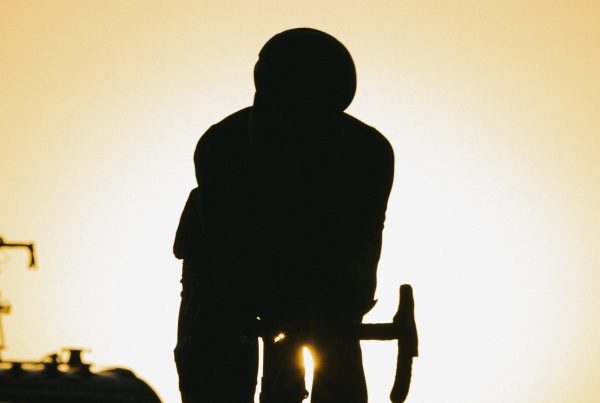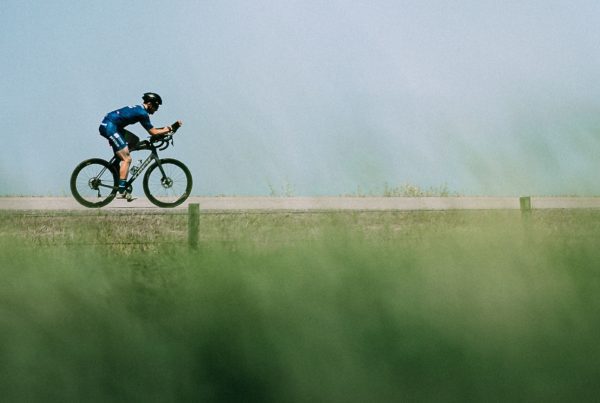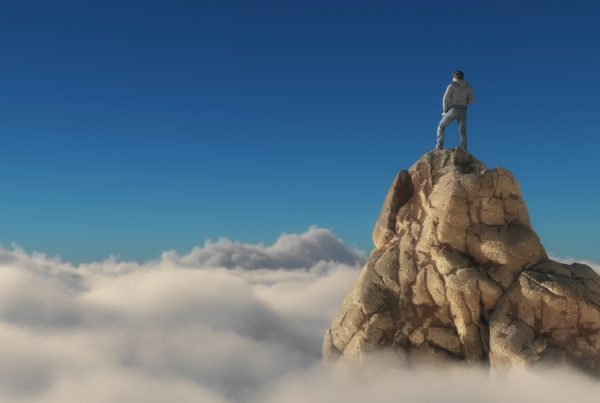This summer, I set myself the challenge of breaking the speed record for crossing Canada by bike. This would mean driving approximately 450 kilometers a day for thirteen consecutive days. I won’t prolong the suspense, I haven’t broken the record. However, I’ve never been as inspired, transformed and motivated by a project as I was by this one.
It took me 15 days, 17 hours and 36 minutes to drive nearly 6,000 kilometers from Vancouver to Halifax. I began my adventure on the day when the hottest temperature in Canadian history was recorded. I climbed the Coquihalla highway and the biggest climbs on the course at temperatures between 45 and 55 degrees Celsius. Even with frequent stops and a dedicated team trying to cool me down with ice, I almost suffered heatstroke. In the days that followed, I covered a respectable distance, but far from the goal I’d set myself.
After seven days, I knew I wasn’t going to break the record, but I had to find a way to keep giving it my best shot. How do you keep going when the initial goal changes? How do you find the motivation to give your best effort when the finish line is still thousands of kilometers away? I had to answer these questions as I cycled across Canada.
From planning to thirty-hour sequences on the bike during the worst heat waves in Canadian history, from choosing the goal to adapting mid-course, there was a lot to learn. Here are some valuable lessons I’ve learned from experience, all of which can help us persevere through difficult times.
1) Sometimes you have to run for the wall and trust that the door will open at the last second. I started planning the project a year before departure, in the middle of the pandemic. There was no guarantee that I would be able to start or finish the crossing.
The key element here is velocity. When the provincial borders reopened, some only a few days before my visit, I was ready. I was willing to operate under uncertainty, and this allowed me to execute, when many would have only begun to plan. Being able to operate in an emergency situation is all well and good, but to stand out and take the lead, you need to have a sense of urgency from the outset.
2) Establish a collective mindset. The support team played a crucial role in the success of the crossing. In fact, my success was collective and shared. The mantra behind our DNA was simple: every minute counts.
My job was to ride, the team’s job was to make sure I was always riding. Meals ready when I arrived, bike maintenance done while I was asleep, refuelling without stopping the bike are all examples of the expression of this mindset. This state of mind was shared and embodied by everyone at every moment. It was the beacon that guided everything we did. I would also add the importance of consistency and alignment between mindset and objective.
3) Resilience is a practice. Even if you break down a huge challenge into smaller pieces, it can still be very difficult!
Resilience isn’t something we magically pull out of a hat during difficult times. It is built on daily actions. Daily, and sometimes quite simple, like going for a run even if it’s raining. As with any sport or skill, resilience needs practice. If we don’t deliberately choose to do difficult things, our resilience will never develop.
4) Strive to create favorable circumstances. I received this advice from ultracyclist Mark Herbst during my training. Whether we like it or not, many things are out of our control, whether we’re cycling across a country or in our own businesses. So our job is simply to strive to create the most favorable circumstances possible within what we control. The best way to increase our chances of success is to concentrate on our own preparation, training, development, equipment and so on.
5) Mission is the ultimate fuel. After the heat came the headwinds. When I realized I wasn’t going to beat the record, I still had 3000 kilometers to go. I had to find the energy and motivation to continue riding for twenty hours a day for eight more days.
The team and I were demoralized. However, this state of affairs was in stark contrast to the messages on social networks, where we were inundated with encouragement and positive messages. Two very different stories were unfolding in parallel. We pulled ourselves together and opted for the more positive story.
I live with type 1 diabetes, and my project also aimed to support Juvenile Diabetes Research Foundation (JDRF). My life’s mission is to inspire young people affected by this condition and show them what is possible, with the disease. Rather than trying to break a record, the team and I chose to focus on this mission. Not only has the mission kept us alive, it has rekindled our passions and commitment.
6) Accumulate experience. Mount Everest, the Sahara race, crossing Canada on foot (2014) and by bike this time. What’s next? The question is as common as it is legitimate. The aches and pains that come with this type of route aren’t really what I’m looking for. What I’m looking for are experiences that enrich my life.
Success or failure, it’s rarely a concern. What matters to me is the inevitable inner transformation. That’s what’s really precious. Accumulate experiences and create memories with those you love. That’s my best advice for being happy.
7) Don’t set realistic goals. Aim big. Even though my crossing time is not inconvenient and, all in all, very fast, I didn’t break the record. I’m proud to have set myself a very ambitious goal; it’s precisely for this reason that I’ve learned and grown so much.
A realistic goal indicates a fear of failure. An ambitious goal demonstrates a growth mindset and a commitment to learning.
When we don’t reach our goal, the result can sometimes be even more positive than we imagined. Crossing Canada tested me more than anything I’ve done before. I had my doubts about my ability to complete the event, but I came out of it more inspired than ever.
That’s why we need to set ourselves big goals. To grow. To learn. To transform. At the end of my crossing, I saw new possibilities and ways to improve. I was motivated to go back to the drawing board and prepare something even bigger. Doing difficult things helps us redefine what we believe is possible.
And what a great way to end: two days after my return home, I completed my registration for the Race Across America (RAAM), the ultra-cycling event recognized as the toughest in the world. A few years ago, even in my wildest dreams, I never thought I’d be able to take part in such an event.
What we can achieve personally and professionally is constantly evolving. If, and only if, we set ourselves goals that are not achievable today.
For some, it’s running five kilometers, for others a marathon or starting a business. Whatever it is for you, take the first step and create an irreversible movement.



